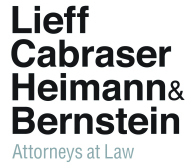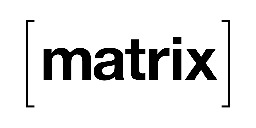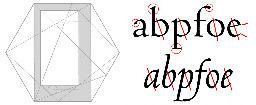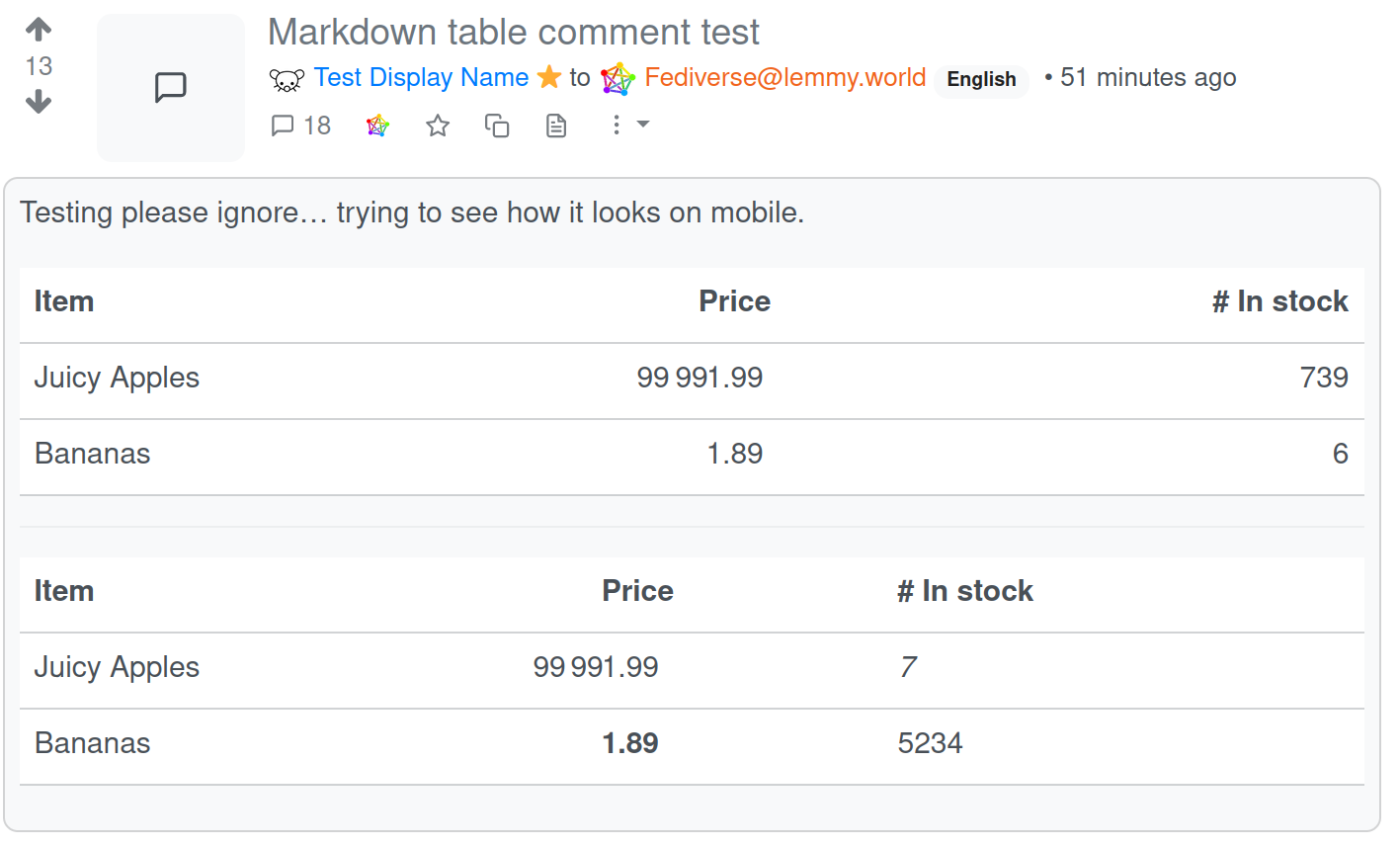Federal antitrust lawsuit against six commercial publishers of academic journals











From this github comment:
If you oppose this, don't just comment and complain, contact your antitrust authority today:
Title:
ChatGPT broke the Turing test
Content:
Other researchers agree that GPT-4 and other LLMs would probably now pass the popular conception of the Turing test. [...]
researchers [...] reported that more than 1.5 million people had played their online game based on the Turing test. Players were assigned to chat for two minutes, either to another player or to an LLM-powered bot that the researchers had prompted to behave like a person. The players correctly identified bots just 60% of the time
Complete contradiction. Trash Nature, it's become only an extremely expensive gossip science magazine.
PS: The Turing test involves comparing a bot with a human (not knowing which is which). So if more and more bots pass the test, this can be the result either of an increase in the bots' Artificial Intelligence, or of an increase in humans' Natural Stupidity.





























The number of people protesting against them in their "Issues" page is amazing. The devs have now blocked the creation of new issue tickets or of comments in existing ones.
It's funny how in the "explainer" they present this as something done for the "user", when it's clearly not developed for the "user". I wouldn't accept something like this even if it was developed by some government – even less by Google.
I have just reported their repository to GitHub as malware, as an act of protest, since they closed the possibility of submitting issues or commenting.
Understandably, it has become an increasingly hostile or apatic environment over the years. If one checks questions from 10 years ago or so, one generally sees people eager to help one another.
Now they often expect you to have searched through possibly thousands of questions before you ask one, and immediately accuse you if you missed some – which is unfair, because a non-expert can often miss the connection between two questions phrased slightly differently.
On top of that, some of those questions and their answers are years old, so one wonders if their answers still apply. Often they don't. But again it feels like you're expected to know whether they still apply, as if you were an expert.
Of course it isn't all like that, there are still kind and helpful people there. It's just a statistical trend.
Possibly the site should implement an archival policy, where questions and answers are deleted or archived after a couple of years or so.
I'm not fully sure about the logic and perhaps hinted conclusions here. The internet itself is a network with major CSAM problems (so maybe we shouldn't use it?).
This is actually already implemented, see here.











Time to change distro.
This image/report itself doesn't make much sense – probably it was generated by chatGPT itself.
Icanhazcheezeburger? 🤣
(Just to be clear, I'm not making fun of people who do any of the specialized, difficult, and often risky jobs mentioned above. I'm making fun of the fact that the infographic is so randomly and unexplainably specific in some points)
One aspect that I've always been unsure about, with Stack Overflow, and even more with sibling sites like Physics Stack Exchange or Cross Validated (stats and probability), is the voting system. In the physics and stats sites, for example, not rarely I saw answers that were accepted and upvoted but actually wrong. The point is that users can end up voting for something that looks right or useful, even if it isn't (probably less the case when it comes to programming?).
Now an obvious reply to this comment is "And how do you know they were wrong, and non-accepted ones right?". That's an excellent question – and that's exactly the point.
In the end the judge about what's correct is only you and your own logical reasoning. In my opinion this kind of sites should get rid of the voting or acceptance system, and simply list the answers, with useful comments and counter-comments under each. When it comes to questions about science and maths, truth is not determined by majority votes or by authorities, but by sound logic and experiment. That's the very basis from which science started. As Galileo put it:
But in the natural sciences, whose conclusions are true and necessary and have nothing to do with human will, one must take care not to place oneself in the defense of error; for here a thousand Demostheneses and a thousand Aristotles would be left in the lurch by every mediocre wit who happened to hit upon the truth for himself.
For example, at some point in history there was probably only one human being on earth who thought "the notion of simultaneity is circular". And at that time point that human being was right, while the majority who thought otherwise were wrong. Our current education system and sites like those reinforce the anti-scientific view that students should study and memorize what "experts" says, and that majorities dictate what's logically correct or not. As Gibson said (1964): "Do we, in our schools and colleges, foster the spirit of inquiry, of skepticism, of adventurous thinking, of acquiring experience and reflecting on it? Or do we place a premium on docility, giving major recognition to the ability of the student to return verbatim in examinations that which he has been fed?"
Alright sorry for the rant and tangent! I feel strongly about this situation.
In my case this translates to "Twitter is now deleted".
For me it’s like using a coffee machine as a stopwatch, and then complaining that it doesn’t always give the exact time lapsed.
Yeah that's bullsh*t by the author of the article.
What's sad and superficial is that these kinds of restrictions and bans just cover a symptom but don't cure the problem. Maybe they even make it worse. We need an overhaul of our cultural and educational foundation.
Usual question behind this kind of stats: what are the sources? I'm tired of having to believe stuff that appears on the net just by faith.
I agree that the wording is inaccurate, but some of the essence remains: the second "service" is forced on you. It's somewhat as if anyone with a Fakebook account also automatically had a Whatsapp or Instagram account, or some permutation of this.
Appreciated if someone can explain what is the problem and its context in simple terms 🙏
I understand the GNU "framework" is built on free, open source software. So I don't understand how one can "discover" that there were pieces of non-free software there... They were put there by mistake?
I'm not fully sure about the logic and hinted conclusions here. The internet itself is a network with major CSAM problems (so maybe we shouldn't use it?).
"Bayesian analysis"? What the heck has this got to do with Bayesian analysis? Does this guy have an intelligence, artificial or otherwise?
The current security philosophy almost seems to be: "In order to make it secure, make it difficult to use". This is why I propose to go a step further: "In order to make it secure, just don't make it". The safest account is the one that doesn't exist or that can't be accessed by anyone, including its owner.
When I used to run simulations, a current of the size of the Gulf Stream could be turned on (with winds and Earth's rotation), from nothing, in around 400 years (see p. 68). Then it maintained steadily. But turning off or changing in important ways can happen much faster. I'd like to know as well. There should be open-access articles in that journal about this.
You brought back memories and I got interested. Interesting reading about privacy:
https://www.irchelp.org/security/privacy.html
How much of it is true?
Nothing dense in this, I don't quite know what to write either. In my opinion what you wrote in your comment is just perfect, you're a citizen simply expressing an honest concern, without lying – not all people are tech-savvy. It also makes it clear that it's a letter from a real person.
But that's only my point of view, and maybe I haven't thought enough steps ahead. Let's see what other people suggest and why.
Maybe my comment wasn't clear or you misread it. It wasn't meant to be sarcastic. Obviously there's a problem and we want (not just need) to do something about it. But it's also important to be careful about how the problem is presented - and manipulated - and about how fingers are pointed. One can't point a finger at "Mastodon" the same way one could point it at "Twitter". Doing so has some similarities to pointing a finger at the http protocol.
Edit: see for instance the comment by @while1malloc0@beehaw.org to this post.
Here?: https://ungoogled-software.github.io/about/
Looks like a good project, I didn't know about its existence.
(also @ridethisbike@lemmy.world)
Maybe it is pointless, maybe it is a bad idea. Maybe not. It's difficult to predict what this kind of small-scale actions will have on the big picture and future development. No matter what you choose or not choose to do, it's always a gamble. My way of thinking is that it's good if people say, through this kind of gestures, "I'm vigilant, I won't allow just anything to be done to me. There's a line that shouldn't be crossed".
Of course you're right about supporting and choosing alternative browsers, and similar initiatives. There are many initiatives on that front as well. I've never used Chrome, to be honest; always Firefox. But now I've even uninstalled the Chromium that came pre-installed on my (Ubuntu) machines. Besides that I ditched gmail years ago, and I've also decided to flatly refuse to use Google tools (Google docs and whatnot) with collaborators, as a matter of principle. If that means I'm cut out of projects, so be it.
Regarding WEI, I see your point, but I see dangers in "acknowledging" too much. If you read the "explainer" by the Google engineers, or in general their replies to comments and criticisms, you see that they constantly use deceiving, manipulative, and evasive language. As an example, the "explainer" says a lot "the user needs this", "the user desires that", but when you unfold the real meaning of the sentences it's clear it isn't something done for the user.
This creates a need for human users to prove to websites that they're human
Note the "need for human users", but the sentence actually means "websites need that users prove...". This is just an example. The whole explainer is written in such a deceiving manner.
The replies to criticisms are all evasive. They don't reply the actual questions or issues, they start off a tangent and spout a lot of blah blah with "benefit", "user", and other soothing words – but the actual question or issue never gets addressed. (Well, if this isn't done on purpose, then it means they are mentally impaired, with sub-normal comprehension skills).
I fuc*ing hate this kind of deceiving, politician talk – which is a red flag that they're up to no good – and I know from personal experience that as soon as you "acknowledge" something, they'll drag your into their circular, empty blabber while they do what they please.
More generally, I think we should do something against the current ad-based society and economy. So NO to WEI for me.
Thank you! never heard of, it looks very interesting!
Where does that graph come from? Can you share the source? Cheers!
True that! and a change from 2% to 5% may feel much larger than that.
Confirming: KDE/Plasma has it natively. You can configure number of rows and columns, whether movement should be cyclic or not, and shortcuts to change desktop and to bring windows to other desktops. You can create and remove new virtual desktops on the spot by right-clicking the tray icon. Also shortcuts to get an overview of all desktops at once.
KDE also has a slightly different way of separating workspaces: "Activities" (which can co-exists with virtual desktops); although I don't use it.
these autonomous agents represent the next step in the evolution of large language models (LLMs), seamlessly integrating into business processes to handle functions such as responding to customer inquiries, identifying sales leads, and managing inventory.
I really want to see what happens. It seems to me these "agents" are still useless in handling tasks like customer inquiries. Hopefully customers will get tired and switch to companies that employ competent humans instead...
Maybe there's some problem with the links? If I click the image or the title of your post I only get redirected to an image.
Musk's attitude is "It's mine, I can do whatever I please". In the long run a person's reply to this attitude is "Fair enough, keep it. I'll use something else". Like I and many others have.
As most who have already commented here, I'm somewhat unimpressed (and would expect more analytical subtlety from a scientist). Wittgenstein already fully dissected the notion of "free will", showing its semantic variety of meanings and how at some depth it becomes vague and unclear. And Nietzsche discussed why "punishment" is necessary and makes sense even in a completely deterministic world... Sad that such insights are forgotten by many scientists. Often unclear if some scientists want to deepen our understanding of things, or just want sensationalism. Maybe a bit of both...
From what I understand – which can be wrong! – a couple of different things may cause this:
It's a bit confusing, and unfortunately it causes fragmentation.
It's sad that they keep using flawed statistical methods in these studies...
Correction: as @Gaywallet@beehaw.org points out, they also use other statistical methods within the paper!
Works via browser too! Very expensive apples though – they better be really juicy.

There are surely pros and cons, possibly good and possibly bad outcomes with such restrictions, and the whole matter is very complicated.
From my point of view part of the problem is the decline of education and of teaching rational and critical thinking. Science started when we realized and made clear that truth – at least scientific truth – is not about some "authority" (like Aristotle) saying that things are so-and-so, or a majority saying that things are so-and-so. Galilei said this very clearly:
But in the natural sciences, whose conclusions are true and necessary and have nothing to do with human will, one must take care not to place oneself in the defense of error; for here a thousand Demostheneses and a thousand Aristotles would be left in the lurch by every mediocre wit who happened to hit upon the truth for himself.
The problem is that today we're relegating everything to "experts", or more generally, we're expecting someone else to apply critical thinking in our place. Of course this is unavoidable to some degree, but I think the situation could be much improved from this point of view.
Nobel prize in computer science. Looks like the Nobel Prize committee has forgotten what Physics is.





There's an ongoing protest against this on GitHub, symbolically modifying the code that would implement this in Chromium. See this lemmy post by the person who had this idea, and this GitHub commit. Feel free to "Review changes" --> "Approve". Around 300 people have joined so far.